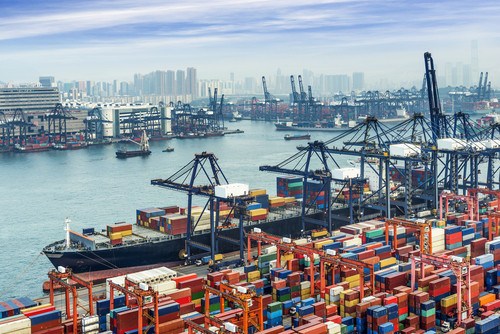Sea-Intelligence has reported that schedule reliability dropped from 78% in 2019 to 63.9% in 2020, and then to 35.8% in 2021, which is not only the lowest recorded fiscal year schedule reliability but is also quite a staggering drop from the pre-2020 levels.
Particularly, the Danish research and analysis company noted that the average delay for late vessel arrivals has been on an upward trend since the lowest recorded delay of 3.19 days in 2016, while in 2021 the figure reached 6.86 days, nearly touching the seven-day mark.
The average delay for all vessel arrivals recorded a sharp increase in 2020, and an even sharper rise in 2021, with the 2021 figure crossing the four-day mark for the first time, according to Sea-Intelligence data.

Maersk was the most reliable top‑14 carrier in 2021 with schedule reliability of 46.4%, followed by Hamburg Süd, with almost 41%.
Four carriers including MSC, Hapag-Lloyd, ZIM and CMA CGM have recorded schedule reliability of 30%‑40%, while seven carriers, PIL, COSCO, ONE, HMM, Wan Hai, OOCL and Yang Ming, recorded schedule reliability of 20%‑30%.
Only Evergreen recorded schedule reliability of under 20%, as well as a year-on-year decrease of 43.2%, according to Sea-Intelligence.
Furthermore, none of the top‑14 carriers recorded a year-on-year improvement in reliability, as seen below.
Regarding the niche carriers, Streamlines, Geest Line, and ICL were the most reliable in 2021, with a schedule reliability mark of 98.8%, 98.6% and 98%, respectively, while ARRC was the least reliable, with a 9.9% mark.
Only 11 niche carriers recorded a year-on-year improvement in schedule reliability.

As per alliances, 2M (33.6%) was the most reliable one in the last year, followed by THE Alliance (15.5%), and Ocean Alliance (8.2%), all of which recorded "substantial" year-on-year declines in schedule reliability.
Only 2M Alliance scored better than the industry average, by 3.5 percentage points, whereas Ocean Alliance recorded a substantial drop of 15.3 percentage points in 2021. In addition, 2M performed better than the industry in three of the four quarters of 2021, according to Sea-Intelligence's figures.

All six major East/West trade lanes recorded double-digit year-on-year declines in schedule reliability, with the Asia‑Europe and Asia-North America West Coast trade lanes recording year-on-year declines of over 40 percentage points.
"That said, apart from the Transatlantic Eastbound trade lane, none of the other trade lanes recorded a better reliability score in 2021 than the industry average, with both Transpacific trade lanes, and Asia-North Europe recording double-digit declines," explained Alan Murphy, CEO of Sea-Intelligence.
In terms of the delays, all six trade lanes follow the same general trend, as seen in the figure below.
In 2021, Asia-North America West Coast recorded the largest increase in the average delay for late vessels, crossing the 12-day mark, while Asia-North Europe was not far behind, having crossed the eight-day mark, according to the analysis report.








